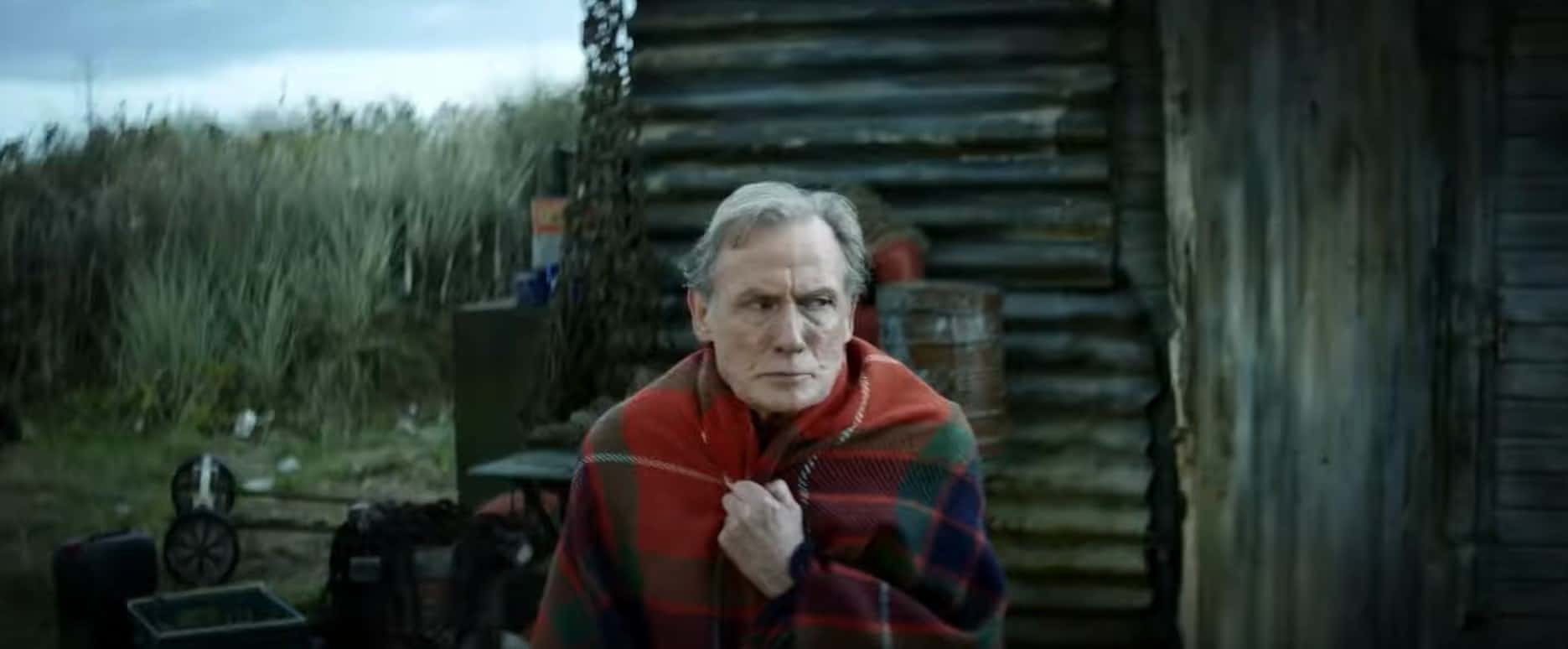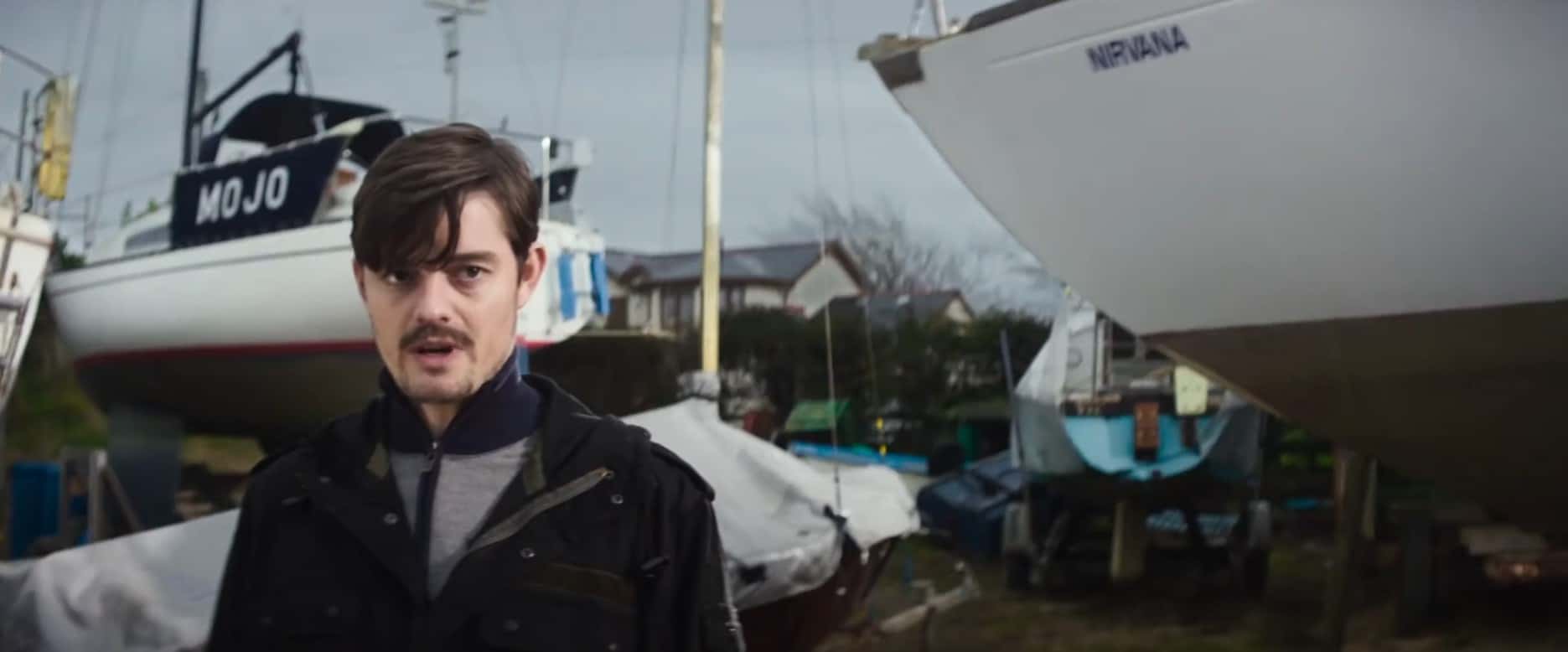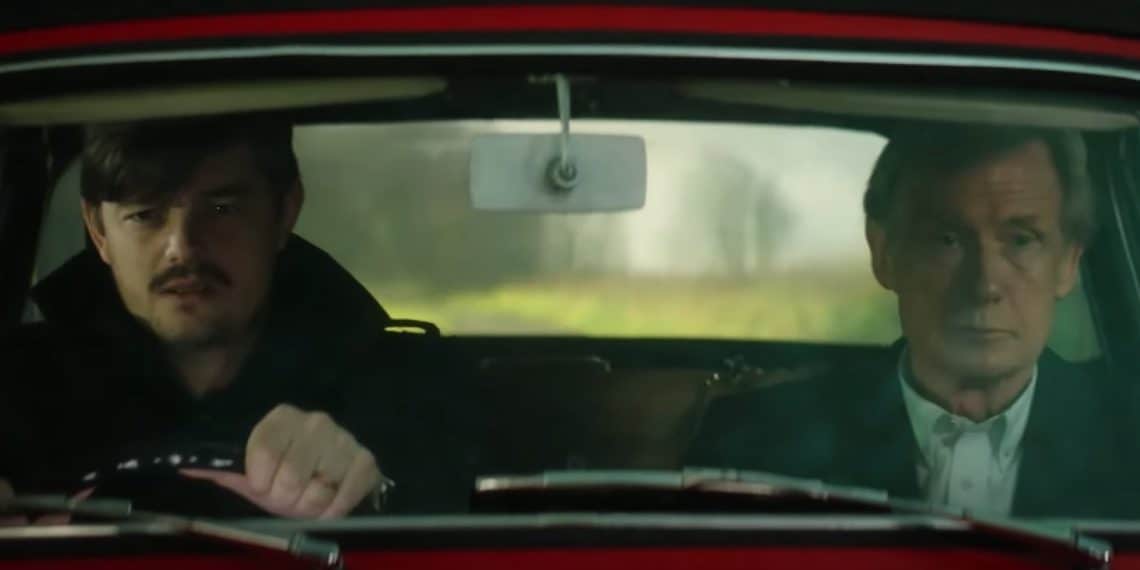Carl Hunter’s 2019 comedy-drama starring Sam Riley, Bill Nighy, and Alice Lowe takes its title from the way you button a gentlemen’s jacket. Still, that’s not the gist of Sometimes Always Never Ending, which we will break down for you today.
The movie tells a fantasy story of a family drama where a fancy schmancy tailor with deep enough pockets looks out for his estranged son, who went missing after things went terribly awry during a very heated game of Scrabble.
The tailor must find his son, fix the relationship with his other kid, and find a way to reunite his family in a hilariously woven movie under the lens of Carl Hunter, under Richard Stoddard’s cinematographic direction, and an amazing script penned by Frank Cottrell Boyce.

Sometimes Always Never Plot
Alan is a tailor who runs a very successful shop. He has two sons, Peter and Michael, who ran away after a Scrabble game gone awry. Father and son have a fraught relationship. For one part, Peter finds that Alan is annoying, infuriating, uptight, and difficult, especially because he has a constant habit of diversions into Scrabble-inspired wordplay because he is completely obsessed with Scrabble and trivia.
In many conversations with his son, Peter tells him how annoyed he is about his obsession with Scrabble and tells him that they never actually did play Scrabble, that they played a knock-off version of it.
The movie goes on to have Alan identify a corpse. Apparently, it is the one of his estranged son, or someone else. Then, Alan starts playing Scrabble online against someone he met online. He doesn’t know who he is, but he guesses by the way his opponent plays the game that it might be his estranged son.
He goes on a search, and he takes his son places, but wherever they go, they end up having conversations about another thing, and they go back home empty-handed, although they have shared some moments. It’s these moments, these witty dialogues, these comfort scenes, and sometimes fights, coupled with the framing of the movie and the choice of colors —that seems like a Wes Anderson movie— that gives us the idea that Michael might never show up.
As the movie reaches its finale, Peter and Alan sit down for one more game of Scrabble in the woods, which leads them until the night.

Sometimes Always Never Ending Explained
Michael never shows up. He was never supposed to. The movie concludes with the family enjoying the fireworks by a beachside fire and with people smiling as Peter sings a melancholic song with happy tropes that make the ones around the bonfire smile.
Then, the camera circles around each one of the protagonists, until it stops at an empty chair, the one reserved for the son that will never come back, because he was gone from the get-go, and Alan and his family must get used to that. Now, let’s break that down a bit.
The thing about this movie, written by Frank Cottrell Boyce, is that he writes dramas that are very different in flavor, but they often have sort of a quirky downbeat reality.
But they’re always about something more profound. Cottrell Boyce’s talent in storytelling is the intertwining sort of thread of down-to-earth comedy, often with elements of tragedy, with elements of tragedy and spirituality. Just watch Butterfly Kiss, Welcome to Sarajevo Code 46 or 24 Hour Party, and you’ll get the idea of where i am coming from.
When we see Cottrell Boyce develop a character like Alan, a tailor obsessed with Scrabble so much that he intertwines every element of his life with Scrabble wordplay, it might seem trivial, but with a writer like him. The trivial aspect of Alan’s character is not so. The film constantly returns to what it means to live off “second bests”, of knock-offs, of the substitute.
This is a film about second bests; again, it is a film about people having conversations about something other than the thing they’re actually talking about. It’s not an easy watch if you’re looking for goofball humor, that’s for sure.





